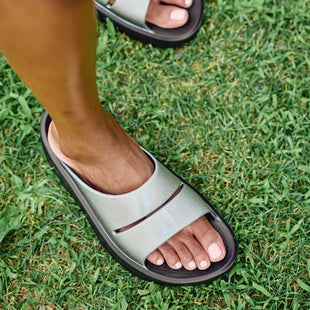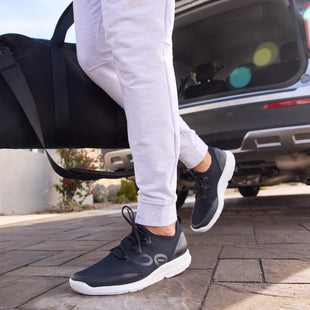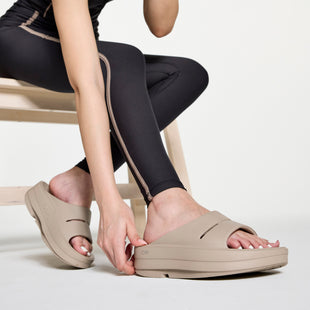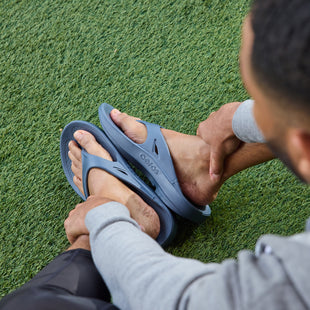A Q&A with OOFOS ambassador Brian O’Leary, Head of Performance at London Irish Rugby
Tell us a bit about your professional background?
My initial degree was in Applied Psychology before doing a MSc in Physiotherapy. I have postgraduate qualifications in Sport and Exercise Medicine, Nutrition, Strength and Conditioning. I have worked in various settings as a physiotherapist including the NHS, private sector and now for the past 12 years in professional sport. I have worked with the Ospreys in Wales for 4 seasons before joining London Irish in 2014 as Head of Medical Services. In 2021 I became Head of Performance at the club.
What does your role at London Irish entail?
My role as Head of Performance entails working with the Medical, Strength and Conditioning, Psychology and Nutrition departments to align our processes to those of the rugby staff to ensure we help our rugby players reach their potential as both rugby players and good people.
Why is recovery so important to rugby players?
Rugby players need to be strong, fast, and powerful athletes and need to repeat those actions on a daily basis throughout the season. If an athlete does not recover from a previous training session or match, then their power output will decrease and their ability to produce the same effort or action will decrease and their risk of injury may increase. Therefore, recovery allows you to perform at your potential while reducing your risk of injury.
How can athletes in general recover more efficiently, away from nutrition?
The key rocks in recovery are sleep and nutrition. After that planning your training week so you have some downtime to rest and recover. Recovery is both physical and psychological so doing something that you feel helps, will help. So, if you like cold modalities then use cold water baths/ice baths but if you like to use hot modalities then try sauna/steam room/pool etc. There’s no one proven way, but my advice is if it makes you feel better then do it!
Your players have been using OOFOS this year as part of their active recovery. Does footwear have a role to play in post-match/training recovery?
To be honest until I used OOFOS this season I would have had my doubts, but since the boys started using OOFOS they have noticed a big difference. We have a lot of Pacific Islanders and Australians that like to go barefoot or wear thongs/flip flops. However, as soon as they put on their OOFOS they notice an immediate difference in terms of comfort and support. And remember, as I said above, if they feel better, they’ll be better!
How important is it to keep feet, ankles, and knees healthy as an athlete?
It is incredibly important to keep feet and ankles healthy and happy! It is well known that what happens at the feet have a direct connection to further up the body. How does the song go “the foot bones connected to the ankle bone, the ankle bone is connected to the……”.
What are your thoughts on the effectiveness of OOFOAM technology?
I love three aspects in particular:
- There is a really good medial arch support
- The raised heel allows more ankle range than barefoot or more traditional sandals
- The foam material has a great shock absorbing effect and is so comfortable especially for a 130kg athlete!!
What tips would you give athletes to help keep their feet and ankles healthy and strong?
- Wear good supportive footwear
- Spent some time barefoot to build up your foot muscles and utilise your receptors
- Use a hockey/golf/lacrosse ball to roll out your arch
- Maintain good ankle range










